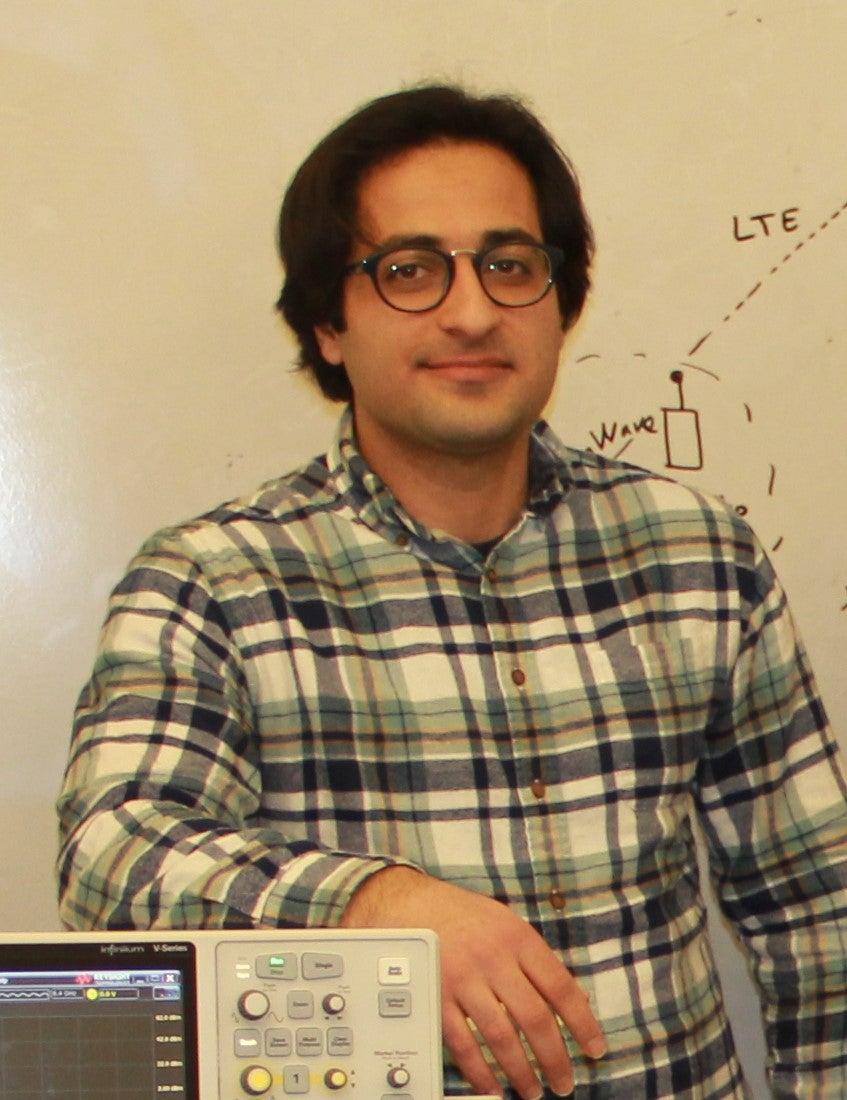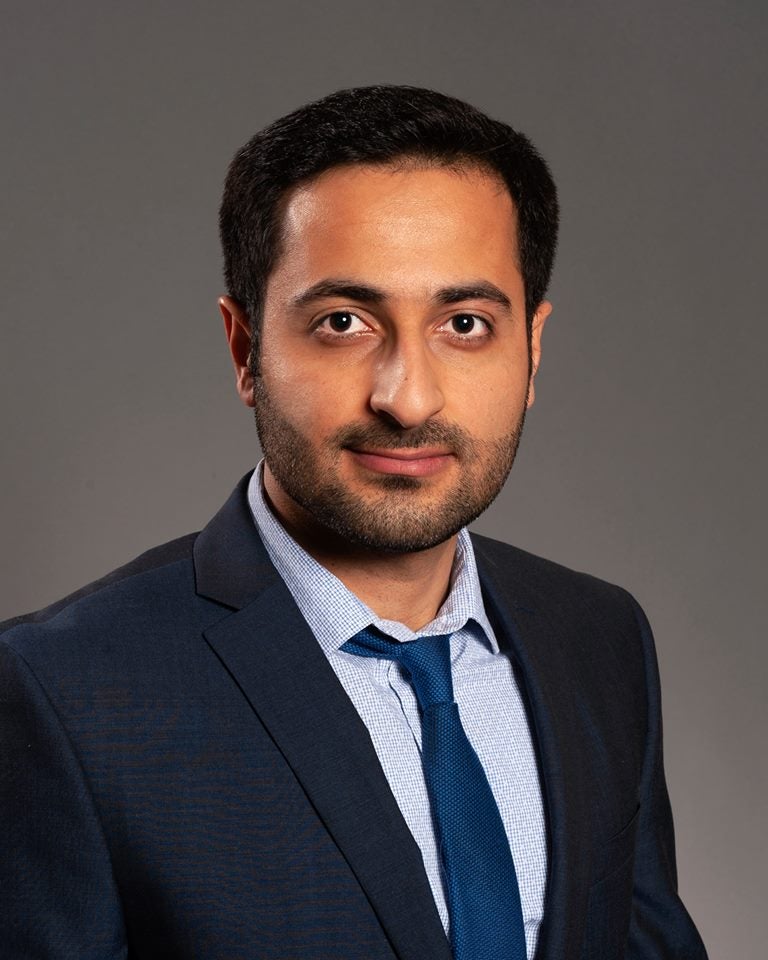Recent doctoral graduate Roohollah Amiri began his journey at the Iran University of Science and Technology. After completing his master’s degree in 2016, Amiri moved to the US and began work on his Ph.D. in electrical and computer engineering at Boise State.

With Dr. Hani Mehrpouyan as his research advisor and mentor, Amiri conducted groundbreaking research in machine learning. He presented his work at several conferences, including the IEEE International Conference on Communications. Amiri has also successfully published his work in peer-reviewed journals including IEEE Transaction on Wireless Communication.
During his doctoral studies, Amiri published nine articles, including A Machine Learning Approach for Power Allocation in HetNets Considering QoS which has been cited more than 40 times since it was published in 2018.
Thanks to his outstanding research work, Amiri was invited to serve as a Visiting Research Scholar at the University of Texas at Austin during his final year of study. Working with Professor Jeffrey Andrews, Amiri researched self-organization and reinforcement learning in wireless networks, developed a geometric network simulator, and studied topology management of 5G millimeter-wave networks.
Amiri’s supervisor Dr. Hani Mehrpouyan speaks highly of Amiri’s success, noting that “throughout his years at Boise State, he was driven to advance research in the field of 5G wireless communications.” Mehrpouyan went on to describe Amiri as an independent researcher who ambitiously pursued his work. “Roohollah is a pleasure to work with and I hope he will be able to continue working with us on machine learning topics in the future.”
Amiri returned to Boise earlier this year and completed his Ph.D. in electrical and computer engineering at Boise State University. His dissertation, Reinforcement Learning in Self-Organizing Cellular Networks explores the applications of machine learning techniques in cellular communications.
When asked what he thought about his time at Boise State, Amiri reflected on the fact that earning a Ph.D. in a technical field requires a certain amount of passion and patience. “Research in a new field is full of trials and errors,” says Amiri. “Many paths did not lead to satisfying results but the ideas that worked made it all worth it.” In the end, Amiri says, earning a Ph.D. changed him. “I became a totally different person. It made me stronger mentally and I am happy that I did it.”

“Research in a new field is full of trials and errors. Many paths did not lead to satisfying results but the ideas that worked made it all worth it.”
Today, Amiri is working as Senior Engineer at Qualcomm where he specializes in merging 5G into industrial IoT. A love for his field keeps him going, Amiri says, and in the future he plans to explore the intersection between artificial intelligence and communication systems.